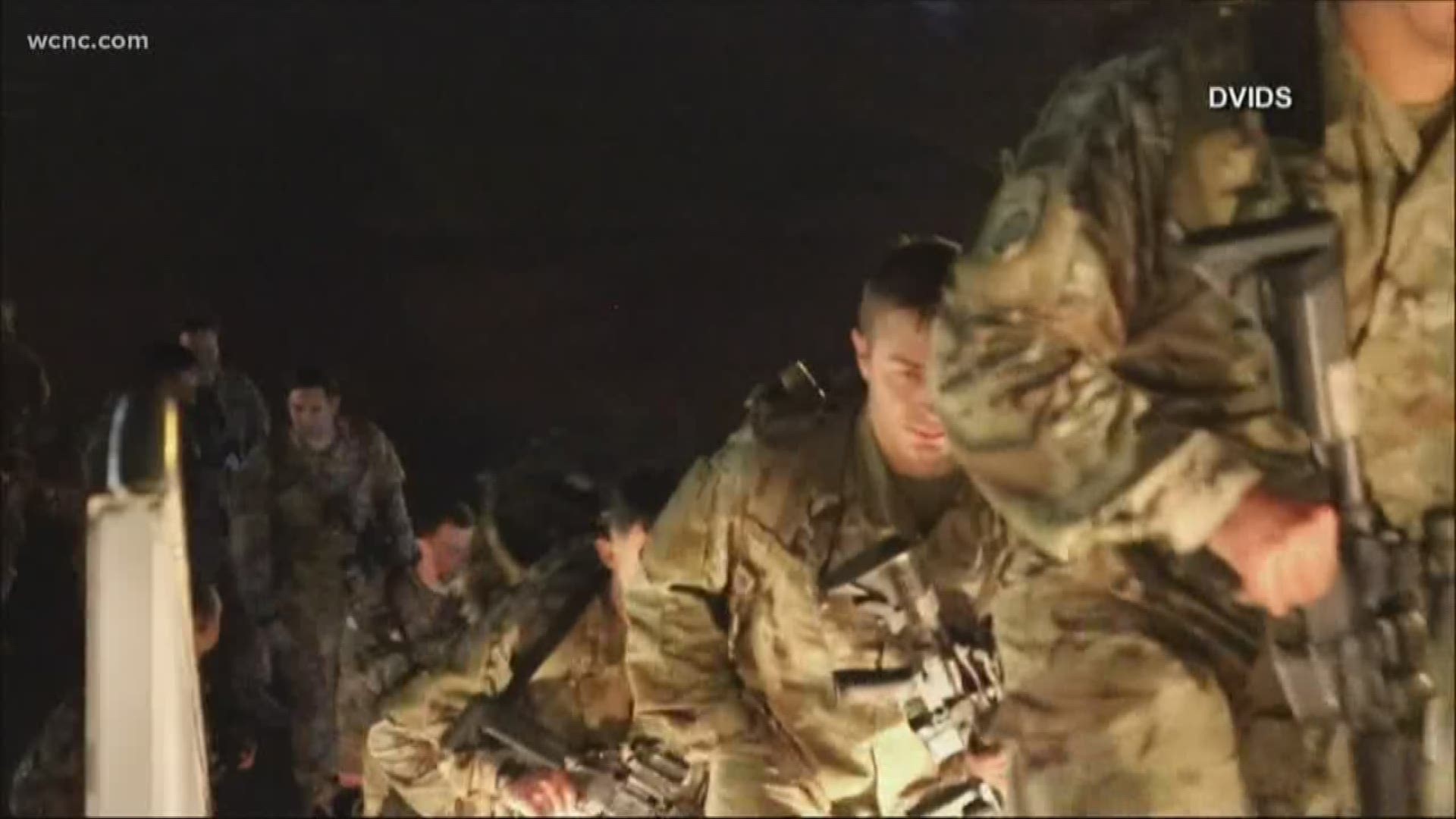FORT BRAGG, N.C. — Thousands of United States service members are headed to the Middle East from North Carolina because of rising tension with Iran.
On Friday, President Donald Trump announced the United States had killed Iran's top general in an airstrike at Baghdad's international airport. The attack threatens to dramatically ratchet up tensions in the region.
The Defense Department says it killed Iranian Gen. Qassem Soleimani because he “was actively developing plans to attack American diplomats and service members in Iraq and throughout the region." Iran’s Supreme Leader Ayatollah Ali Khamenei is warning that a “harsh retaliation is waiting” for the U.S. after the airstrike.
President Donald Trump said he had the Iranian military commander killed “to stop a war," but the Pentagon is bracing for Iranian retaliation. Trump says Gen. Qassem Soleimani had a “sick passion” for killing people, and says after a U.S. drone strike hit his vehicle in Baghdad early Friday, “his reign of terror is over.”
The airstrike came days after an Iranian-supported militia attacked a United States embassy in Baghdad.
The U.S. is sending 3,000 Fort Bragg soldiers to the Middle East, and a U.S. official said the deployment to Kuwait could eventually total about 4,000 soldiers.
The Associated Press and WFMY contributed to this report.
'Our last words together were we love each other'
WCNC's sister station WFMY spoke to Ronald Moeller, who said his son is one of the soldiers being deployed. Moeller said he couldn't be prouder.
"He’s in the 82nd Airborne First Brigade Combat Team, he’s a Platoon Sergeant," Moeller stated.
The Moeller's are a family of service, so they know to expect the unexpected. Nevertheless, Ronald said he was in shock when he got the phone call from his son, saying he was headed for the Middle East.
"Our conversation got cut short because his First Sergeant was calling him to give him instructions I’m sure, and our last words together were we loved each other."
FULL STORY: 'Our last words together were we love each other' father of deployed Fort Bragg soldier says he's proud
Jessica Winters with WFMY and the Associated Press contributed to this report.
The community response
Across the United States, demonstrators gathered to protest the airstrike and subsequent decision to send soldiers to the middle east.
More than 70 planned protests on Saturday were being spearheaded by CODEPINK and Act Now to Stop War and End Racism, a U.S.-based anti-war coalition, along with other groups.
Protesters carried signs and chanted anti-war slogans. The groups said the Trump administration has essentially started a war with Iran by assassinating Qassem Soleimani, the top military leader of that country.
NBC affiliate WRAL reported that protesters on both sides gathered in Fayetteville, North Carolina near Fort Bragg on Saturday.
The Associated Press contributed to this report.
What leaders are saying
Political leaders in the Carolinas have been vocal about the drone strike, both in support and opposition.
South Carolina Senator Lindsey Graham said Friday he approved of the decision.
"Wow - the price of killing and injuring Americans has just gone up drastically. Major blow to Iranian regime that has American blood on its hands. Soleimani was one of the most ruthless and vicious members of the Ayatollah's regime. He had American blood on his hands," Graham tweeted.
In North Carolina, Republican Senator Thom Tillis reacted in a Tweet calling Soleimani a “terrorist,” adding, “The Iranian government should understand that their acts of aggression and terror against American civilians and servicemembers will have consequences.”
Meanwhile, Democratic Congresswoman Alma Adams in a tweet called Trump unfit for office, writing, “President Trump is on a deadly irresponsible course that will lead to war. The President is putting the safety&security of American lives around the world in danger.”
WLTX staff contributed to this report.
Impact to your wallet
Stocks fell broadly and oil prices surged after the U.S. strike. On the day of the attack, CNBC reported oil prices surged 3%.
Prices at the pump could rise if the conflict continues, GasBuddy's Patrick DeHaan told USA Today. "The severity of their response is what’s going to impact gas prices most," DeHaan told the paper.
In addition, bond prices rose as investors sought safety, sending yields lower. That hurt banks, which make less money when interest rates are low.
The Associated Press contributed to this report.

